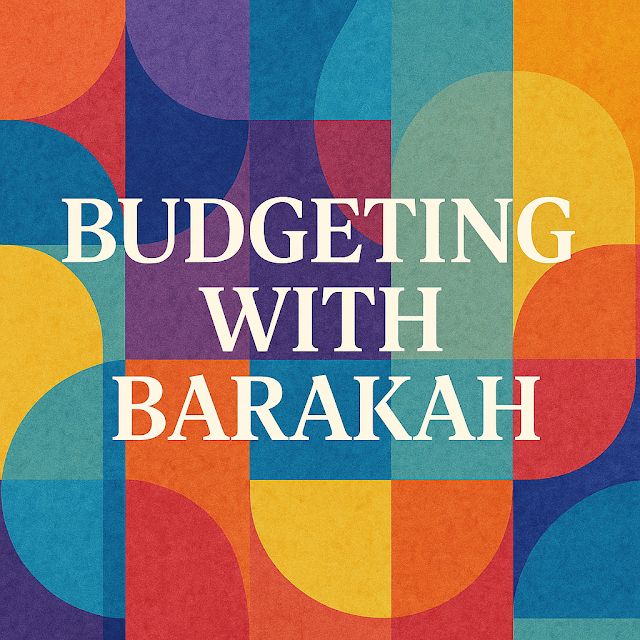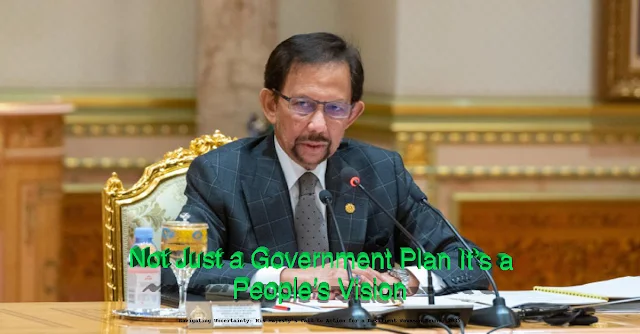By Malai Hassan Othman
Bandar Seri Begawan, May 2025: Brunei's fiscal engine is sputtering. With a looming B$2.99 billion deficit and no personal income tax, policymakers are walking a financial tightrope.
The country has prided itself on tax-free salaries and state-funded services. However, as economic pressures mount, this model now feels more myth than miracle.
Online, whispers have turned into questions. Should Bruneians start paying personal income tax? Can the government afford not to introduce it?
Officially, the answer remains unspoken. However, budget shortfalls, weak diversification, and public frustration suggest this may not stay quiet for long.
Brunei’s median salary is just B$960 per month. In 1984, it was ahead of Singapore’s. Today, it lags far behind.
Singapore's average wage is more than four times Brunei’s. Malaysia’s, too, has surpassed Brunei’s lower end by hundreds of dollars.
That stark gap, plus rising living costs, makes the thought of income tax hard to stomach for many.
“If they want our taxes, can they first fix our pay?” says a frustrated contributor in an anonymous thread.
Brunei’s economy still leans heavily on oil and gas, which account for 75% of national revenue. But production has slowed.
Budget documents show deficits in seven of the past ten years. Reserves are helping for now, but no one expects that to last forever.
Second Finance Minister Dato Dr Hj Mohd Amin Liew Abdullah has acknowledged the gap. He calls it a “divergence” from countries with broader tax bases.
“Even with more tourists or homebuyers, it doesn’t necessarily raise government revenue,” he admitted at LegCo.
Running on Fumes
Brunei’s tax system is narrow. No sales tax. No capital gains tax. And no personal income tax.
The few taxes that exist - on companies, cars, tobacco, and imports- aren’t enough to sustain the growing budget.
Calls to raise corporate taxes are met with warnings: businesses may pass costs to consumers or leave altogether.
Meanwhile, the government is exploring public-private partnerships, Islamic finance, and even a stock market. But these take time.
What the Hansards Suggest
The official record is cautious. Income tax has not been openly debated. But hints and hesitations are telling.
In the Hansard dated 8 March 2025, the Finance Minister said: “Other countries have more fiscal tools... we rely on only a few types of taxes.”
On 12 March, he responded to a loophole query: “If everyone structures their companies to avoid taxes, what revenue do we have left?”
Not direct endorsements, but the undertone is hard to miss: Brunei is running out of fiscal runway.
A Glimpse from the Ground: The Cost of Inequality
Hjh Salmah, a retired school clerk in her late 60s, survives on a monthly pension of B$250. She shares her modest home in Tutong with two unemployed grandchildren.
She has never paid income tax - but says she’s already paying in other ways: rising prices, long clinic queues, and grandchildren unable to find jobs.
“If they ask me to pay tax, I want to know what for. Not for more ceremonies. For jobs, clinics, and fair help,” she said.
Her voice mirrors the unspoken fear of many: that if tax is introduced without reform, the poor will pay more, and still live with less.
Everyone Talks - Except the Ones in Power
Across online forums, private group chats, and anonymous threads, the tax debate is alive. But in Parliament? Silence.
The fear: breaking the unwritten pact - oil wealth for tax-free living. But that pact may no longer be sustainable.
Citizens are doing the math. One wrote: “200,000 workers earning B$1,200 a month. A 10% tax would raise only B$288 million. The deficit is ten times that.”
No Taxation Without Trust
It’s not just the numbers. It’s the trust. Bruneians fear taxes will fund unclear expenses, not public services.
“We already pay hidden taxes - road tax, import duties. What do we get in return?” wrote another anonymous commenter.
Without transparency, introducing personal income tax risks public backlash and political tension.
The Real Deficit: Credibility
The public isn’t just wary of taxes. They’re wary of how money is used.
If income tax is to be introduced, it must follow tangible reforms in fiscal transparency, including open budgeting, performance audits, and structured public engagement.
Return on Benefits, Not Investment Alone
One new idea emerging is “Return on Benefits” (ROB). Unlike ROI, which measures financial profit, ROB tracks social outcomes.
That means evaluating spending by how it improves health, education, and equity, not just bottom lines.
It aligns with Brunei’s national philosophy: Malay Islamic Monarchy. But it demands measurable transparency.
Tax, if ever introduced, must be sold not as a burden, but as an investment in the nation’s future.
The Political Price of Tax Reform
Introducing personal income tax wouldn’t just shift finances - it could shift the political equation. Bruneians are beginning to ask hard questions.
If we pay, shouldn’t we have a say? Who decides how our tax dollars are spent? Where’s the accountability?
In many countries, taxes and representation go hand in hand. People expect more voice when more is asked of their wallets.
Brunei’s current model is top-down. But if personal taxation enters the picture, calls for more inclusive, participatory governance will likely follow.
This is the quiet implication behind every anonymous thread, every frustrated whisper: No taxation without representation.
Sharing Power or Protecting the Status Quo?
The deeper question is not about revenue, but about readiness. Is the government prepared to share power, or simply protect its traditional top-down model?
Introducing personal income tax means more than fiscal change. It invites a fundamental shift in the relationship between citizens and the state.
Introducing tax transforms expectations. Citizens will call for a greater say in policies and spending priorities, driving a push for more accountable governance.
If Brunei wants to tax its people, it may also need to trust them more. Power shared is legitimacy earned.
A Regional Mirror: Lessons from Malaysia and Singapore
Malaysia introduced income tax in 1947 under British rule, and today its system includes progressive rates, tax rebates, and active public participation in budget planning.
Singapore, while maintaining low tax rates, pairs its income tax with extensive social services, housing subsidies, and citizen consultations that boost trust in public spending.
Both countries show that income tax can coexist with legitimacy - if it's transparent, fair, and delivers visible returns to citizens.
Brunei can learn from these models if it wishes to balance sovereignty with sustainability.
Faith-Based Fiscal Tools: The Waqf and Zakat Alternative
While personal income tax remains politically sensitive, Brunei holds two powerful, underutilised tools in its economic arsenal: waqf (endowment) and zakat (almsgiving).
Waqf governance isn’t new in Brunei. The Mosque Construction Fund and Yayasan Sultan Haji Hassanal Bolkiah already operate on waqf principles. What’s needed now is policy recognition, scale, and integration beyond religious spaces.
A proposed framework called Waqudgeting - blending spiritual priorities with national spending - classifies waqf contributions like social infrastructure, sustainable livelihoods, and food security.
Spending is guided not just by urgency, but by spiritual weight: daruriyyat (necessities), hajiyyat (needs), and tahsiniyyat (enhancements).
This approach aligns naturally with Brunei’s national philosophy of Malay Islamic Monarchy. It also resonates with the UN’s Sustainable Development Goals, offering Shariah-compliant answers to modern fiscal dilemmas.
Globally, Indonesia and Turkey have already embedded waqf into development finance. Malaysia’s Waqaf An-Nur clinics and Indonesia’s Waqf-linked Sukuk fund education and healthcare with no tax burden.
Brunei could leapfrog these models. It has the spiritual mandate, institutional capital, and public trust to lead the region in faith-based governance innovation.
Waqf and zakat, if institutionalised under a national framework and connected to CSR-driven public-private partnerships, can ease the pressure to impose tax while enhancing social equity, creating jobs, and reducing public expenditure.
Brunei can go further by linking waqf to Public-Private Partnerships (PPP) for high-impact sectors like food security. Agro-industrial hubs anchored in waqf land could employ youth, support women entrepreneurs, and reduce import dependency - all without new taxation.
Zakat revenue remains inconsistent due to weak enforcement. Legal provisions for business zakat exist, but lack implementation. Formalising this stream could stabilise welfare funding and relieve pressure on public funds.
The “Waqudget” system, already proposed by scholars, classifies spending based on spiritual urgency — daruriyyat(necessities), hajiyyat (needs), and tahsiniyyat (enhancements). This model offers a moral filter for fiscal decisions, grounding budgets in values of amanah (trust) and ihsan (moral excellence).
CSR, too, must evolve from branding to obligation. Under a waqf-linked PPP framework, corporate social responsibility becomes national co-stewardship - embedding ethical expectations into business conduct.
Private firms would co-invest in infrastructure, education, and health, aligning profit with nation-building.
This model blends public asset management with spiritual ethics, where dignity, equity, and trust take precedence over profit motives and short-term gains.
When designed with integrity and community participation, waqf and zakat become more than religious obligations - they become economic engines.
A Call to Act with Courage and Conviction
Brunei is at a crossroads. The debate around personal income tax is not just a fiscal question - it's a moral, political, and developmental turning point.
Rather than waiting for a crisis to force change, policymakers have the opportunity to lead. Institutionalising faith-based fiscal tools like waqf and zakat, and opening structured dialogue on tax, governance, and transparency, can reset the social contract without fracturing it.
This is Brunei’s chance not only to fix its fiscal model, but to reimagine it, grounded in barakah, stewardship, and co-responsibility.
It is time to convene a national fiscal reform dialogue - involving economists, religious scholars, youth leaders, LegCo members, business leaders, and civil society - to co-create a Bruneian model that is both spiritually anchored and economically resilient.
It’s not about abandoning Wawasan 2035 - it’s about adapting its path through trust, co-ownership, and a governance model rooted in shared dignity.
Final Thoughts
Brunei’s leaders know the current fiscal model cannot hold forever. The public knows it too.
Whether personal income tax is introduced or not, the time for silence is running out. It’s time for a national conversation. (MHO/05/2025)




.jpeg)


